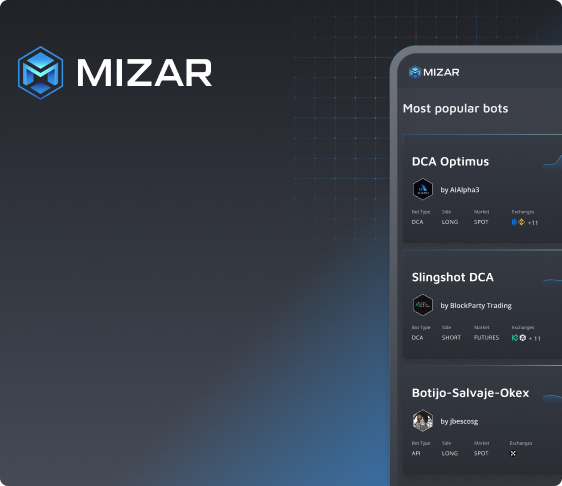Ensuring Safety and Security with Smart Contract Audits

In the rapidly evolving world of blockchain technology, smart contracts have gained significant attention for their potential to revolutionize various industries. These self-executing contracts are designed to facilitate and automate transactions without intermediaries. However, as with any emerging technology, it is essential to address the safety and security concerns associated with smart contracts. In this article, we will delve into the safety of smart contracts, the process of verifying them, the role of auditors, and the importance of smart contract audits.
Key Takeaways:
Smart contracts built on blockchain networks have inherent security features, but vulnerabilities can arise due to programming errors or design flaws.
Verifying a smart contract involves code review, testing, formal verification, security analysis, attack surface analysis, and compliance checks.
Smart contract audits are typically conducted by specialized auditors or security firms with expertise in blockchain technology, cryptography, and programming languages.
Smart contract audits are crucial for individuals, organizations, startups, DApps, and enterprises to mitigate risks, ensure security, and build trust among users and stakeholders.
How Safe are Smart Contracts?
Smart contracts, built on blockchain networks, leverage the inherent security features provided by decentralized ledgers. The safety of a smart contract largely depends on the accuracy and robustness of its underlying code. While blockchain technology itself is considered secure, vulnerabilities in smart contracts can arise due to programming errors, design flaws, or malicious intent. Read here about what smart contracts are, or here about the advantages and challenges of smart contracts.
One of the most infamous incidents involving blockchain smart contract vulnerabilities is the DAO (Decentralized Autonomous Organization) hack in 2016. Exploiting a flaw in the contract's code, hackers were able to siphon off a significant amount of cryptocurrency. This incident highlighted the importance of rigorous smart contract audits and the need to implement best practices to ensure the safety and security of smart contracts.
How to Verify a Smart Contract?
Verifying an Ethereum smart contract for example involves a meticulous analysis of its code to identify potential vulnerabilities, bugs, or other weaknesses. Several steps can be taken without an official audit to verify the safety of a smart contract:
Code Review: An expert developer should review the code to identify any logical or syntactical errors. He should ensure that the contract behaves as intended, accurately handles edge cases, and adheres to best coding practices.
Testing: Comprehensive testing, including unit tests and integration tests, helps identify vulnerabilities and ensures the contract functions correctly under different scenarios. Testing can be done through frameworks like Truffle or using blockchain test networks.
Formal Verification: Formal methods and tools can be employed to mathematically verify the correctness and security of a smart contract. These methods involve mathematical proofs to demonstrate the absence of certain vulnerabilities.
Security Tools: Specialized security analysis tools, such as static analyzers and linters, can help identify potential vulnerabilities, insecure coding patterns, or outdated dependencies.
Compliance and Regulatory Check: One can hire Auditors to evaluate whether the smart contract complies with relevant regulations, such as anti-money laundering (AML) and know-your-customer (KYC) requirements, if applicable.
Who Verifies Smart Contracts?
Crypto smart contract verification is typically performed by specialized auditors, security firms, or blockchain development companies. These entities possess expertise in smart contract development, security analysis, and auditing. They review the code, perform various testing methodologies, and evaluate the contract's compliance with industry standards and best practices.
Auditors often have a deep understanding of blockchain technology, cryptography, and programming languages specific to the smart contract platform being audited. Their expertise enables them to identify potential vulnerabilities and provide recommendations to enhance the contract's security and functionality.
What is a Smart Contract Audit?
A smart contract audit is a systematic examination of a contract's code and functionality to ensure its safety, security, and reliability. The audit aims to identify potential vulnerabilities or weaknesses in the contract's design and implementation. Auditors assess the contract against industry best practices, security standards, and regulatory compliance requirements.
Who Needs a Smart Contract Audit?
Any individual or organization intending to deploy a smart contract should consider a thorough audit to mitigate risks and ensure the integrity of the contract. This includes blockchain startups, decentralized applications (DApps), organizations conducting Initial Coin Offerings (ICOs), and enterprises implementing blockchain solutions.
Smart contract audits are particularly crucial when handling sensitive data, managing digital assets, or facilitating complex financial transactions. They help build trust among users, investors, and stakeholders by demonstrating a commitment to security and responsible deployment of smart contracts.
What Gets Reviewed During a Smart Contract Audit?
A smart contract audit involves an in-depth analysis of various aspects of the contract's code and functionality. The following areas are typically reviewed during an audit:
Code Quality and Best Practices:
Assessing code readability, efficiency, and adherence to industry best practices.
Identifying potential coding vulnerabilities like improper variable handling, lack of input validation, or vulnerable cryptographic implementations.
Security Vulnerabilities:
Identifying potential security vulnerabilities, such as reentrancy attacks, time manipulation, or denial-of-service attacks.
Examining the contract for entry points that could be exploited by malicious actors.
Consensus and Blockchain Integration:
Verifying proper integration with a specific blockchain or consensus mechanism.
Evaluating interactions with external smart contracts or oracles.
Compliance and Regulatory Requirements:
Verifying compliance with relevant regulations, such as data privacy laws or financial regulations.
Ensuring appropriate handling of sensitive data and adherence to compliance standards.
Error Handling and Edge Cases:
Reviewing how the contract handles errors, exceptions, and boundary conditions.
Ensuring the prevention of vulnerabilities arising from unexpected inputs or conditions.
Gas Optimization:
Evaluating gas usage and recommending optimizations to reduce transaction costs.
Improving contract efficiency, especially for high-frequency transactions.
Contract Upgradability and Maintenance:
Reviewing mechanisms for safe contract upgradability or maintenance.
Ensuring security and functionality are not compromised during upgrades.
Documentation and Transparency:
Assessing the clarity and comprehensiveness of contract documentation, including code comments and external documentation.
Improving understandability, maintainability, and future audits.
Overall Risk Assessment:
Providing an overall risk assessment, including identified vulnerabilities, potential impacts, and recommendations for remediation.
Assisting stakeholders in understanding and mitigating risks associated with the smart contract.
Conclusion
Smart contracts built on blockchain networks offer inherent security features but are still susceptible to vulnerabilities due to programming errors or design flaws. To ensure the safety and reliability of smart contracts, thorough verification and audits are necessary. During a smart contract audit, various aspects of the contract's code and functionality are reviewed. This includes assessing code quality and best practices, identifying security vulnerabilities, verifying compliance and regulatory requirements, evaluating error handling and edge cases, optimizing gas usage, reviewing contract upgradability and maintenance mechanisms, assessing documentation and transparency, and providing an overall risk assessment.
By thoroughly reviewing the above aspects of smart contract audits, stakeholders can identify and address potential vulnerabilities, ensure compliance with regulations, and enhance the security and functionality of their contracts. Ultimately, smart contract audits play a vital role in fostering trust, promoting responsible deployment, and safeguarding the integrity of smart contracts in the blockchain ecosystem.


